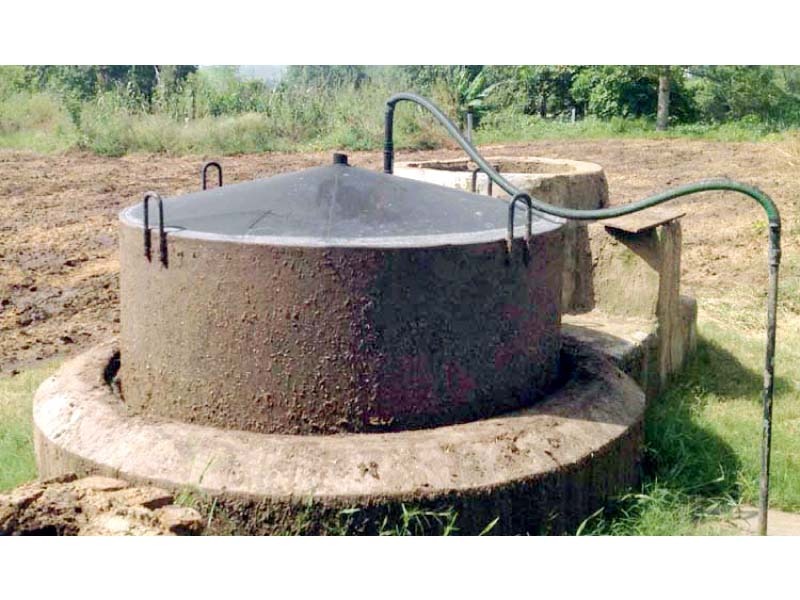ISLAMABAD: Pakistan is primarily an agricultural economy with tremendous potential for using biogas. However, the biogas resources are not optimally utilized, needing a rethink of policy actions that affect biogas adoption, reports WealthPK.
According to a research on the factors affecting the use of biogas tech by Pakistani farmers, Prof Dr. Inayatullah Jan from the Institute of Development Studies (IDS), the University of Agriculture Peshawar, the government has initiated domestic biogas projects to replace the conventional fuels, such as the leftover crops, liquefied petroleum gas, wood, and animal dung cake. However, achieving the objective of wide-scale adoption of biogas plants in rural areas has been found challenging. In order to promote the use of biogas, the government offered subsidies to the rural areas’ population. However, the biogas technology has not yet received a favourable acceptance there.
Research suggests that the government should introduce small-scale biogas plants in the targeted areas if fewer animals are owned in households and vice versa. It further suggests that providing the same subsidy and equal size of units to all the households with different socioeconomic factors would not be an efficient solution for biogas adoption.
Research shows that households with a high-income range are less willing to adopt biogas technology than those with a lower income level, mainly due to the clean energy alternatives. Hence, it implies that bio-gas adoption policies and subsidies should be designed for very remote and poor areas so that the adoption rate would be high.
Research also finds that the size of landholdings often plays a vital role in biogas technology adoption because farmers with more landholdings have sufficient resources to maintain and efficiently utilize biogas plants. However, small landholdings do not necessarily impede the adoption of biogas technology if small biogas plants are provided.
According to the study, biogas plants face operational problems, such as deterioration of the steel parts, roof and wall cracks, and leakages of the gas pressure. The unavailability of technicians, frequent operational problems, and low biogas pressure hinder the adoption process.
Low gas pressure is a serious issue facing the rural households. Poor mixing of raw material has been identified as the main reason for the low gas pressure in the reactor. Research suggests that the government should introduce extension services as a policy measure for adoption of biogas plants to overcome the operational issues.
According to the Economic Survey of Pakistan, livestock, comprising 6.89 percent of agriculture and 14.04 percent of GDP, grew by 3.26 percent in 2021-22 compared with 2.38 percent last year.
Livestock accounts for around 20% of the agricultural industry and animal husbandry is one of the most prominent economic activities in Pakistan’s rural areas. More than 8 million rural households rely on livestock farming earning 35-40% of their income. There were approximately 53.4 billion cattle, 43.7 billion buffalos, 31.9 billion sheep, and 82.5 billion goats in the country in 2021-2022. The gross value has grown by 3.26 percent from Rs5,269 billion to Rs5,441 billion.
According to the latest research on bioenergy production in Pakistan – conducted by the Laboratory of Development and Application of Rural Renewable Energy, Biogas Institute of Ministry of Agriculture and Rural Affairs of China – Pakistan uses 84 Million Tonnes of Oil Equivalent (MTOE) every day by using fossil fuels. Since the fossil fuel supplies are dwindling and won’t fulfil future needs, the country needs to investigate other energy sources to meet its needs.
Biomass may ease Pakistan’s energy woes as it can generate 20,709MW bio-electricity and 12,615 million m3 of biogas annually.






